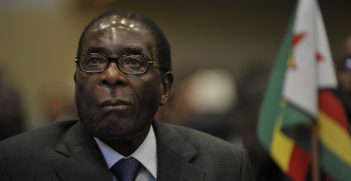Argentinian Bicentenary Puts Focus on Future

Argentina celebrates the 200th anniversary of its independence from Spain today. It has much to celebrate as it has transitioned into a democratic, peaceful and stable middle-sized economy, but this anniversary also invites reflection upon its significance and how it will project into the future.
Two hundred years ago, in July 1816, the Congress of Tucumán declared the independence of the then so-called United Provinces in South America from Spain, its monarch and successors, and from any other foreign domination. This solemn act marked the birthday of what later was going to be named Argentina. It also consolidated a process that had started six years earlier, when the May Revolution led to the appointment of the first local government and the dismissal of Spain’s Viceroy Cisneros.
The historic context that paved the way for Argentina’s revolution and later independence was framed by the Napoleonic invasion of Spain and the consequent imprisonment of the royal family and its temporary replacement by Napoleon’s brother on the throne. This was contested with the establishment of the “Junta Central de Sevilla” that was dissolved by French troops.
The lack of a legitimate authority in the metropolis was the formal pretext that led to the expelling of the viceroy and the establishment in May 1810 of the first local government in Buenos Aires. It would still refer to the authority of the imprisoned king while a long war of independence against Spanish troops began.
Of course, there were deeper causes of the revolution. The negative consequences of the trade monopoly with Spain (free trade was only permitted in 1809); the continued preference for public office of people born in Spain over those born in the colonies; and the influence of the Enlightenment movement and the French and American revolutions were important in the push towards independence. There was also the new sense of strength and freedom after the rejection of the two British invasions (1806-07) of Buenos Aires by the newly formed creole battalions that were created in haste when the viceroy left the city. When King Ferdinand VII was restored to the throne, the Provinces reacted by organising a congress in the northern city of Tucuman where its 33 deputies, representing 15000 people each, declared their freedom.
The country’s new independence was not recognised at the time by any foreign power and the patriots would still have to fight their way to political sovereignty, including the military expeditions of General José de San Martín to liberate Chile and Perú. Although Argentina is still a young nation in relative terms, a long time has passed since these important events, and milestones such as this one invites us to pause and reflect upon its significance and how it will be projected into the future.
Despite the ups and downs registered throughout its history, Argentina has succeeded in establishing a stable and democratic country. Today, Argentina is a federal republic of about 43 million people, composed of 23 provinces and the Autonomous City of Buenos Aires, with a fully democratic presidential system.
Argentina guarantees, by its constitution and legal system, the full enjoyment and protection of human rights and fundamental freedoms for all. The international instruments ratified by the country have pre-eminence over domestic law. Argentina is party to most international treaties on human rights. The country has opened up to millions of migrants. Between 1850 and 1950, Argentina attracted large numbers of European immigrants. Over the last decades, the shift has changed to immigrants mainly from neighbouring countries and Asian nations. All these waves have contributed to Argentina’s rich culture and multiculturalism and the country is well known for its respect for diversity.
On the economic side, it has a diversified base and is one of the leading producers and exporters of agribusiness goods and services. Argentina’s vast potential is also reflected in its global rankings which include the country being the third largest economy (after Brazil and Mexico) and having the second highest gross domestic product (GDP) per capita in purchasing power parity (PPP) terms in the region. The country has eight oil and gas reserves ranking it fourth worldwide in shale oil and second in shale gas reserves; is one of world’s leading beef and soybean exporters and top producer of sunflower seeds, lemons and soybean oil; and is a part of wide range of relationships and bilateral treaties such as the G20 with access to South American markets through MERCOSUR (Southern Common Market).
The policies set up to attract foreign investments and re-position the country in world affairs have attracted worldwide interest as evidenced by the recent visits of various heads of state such as Presidents Barack Obama, French President Francois Hollande and the Italian Prime Minister Matteo Renzi.
With Australia, Argentina shares a strong and friendly relationship that reflects both at the bilateral and international fields. It is also a relationship based on shared values that has great potential and both governments are working hard to expand our bilateral ties and investment flows in areas such as agribusiness, science and technology, mining, tourism and education.
To sum up, Argentina has many reasons to celebrate its first 200 years as an independent nation. It has become a democratic, peaceful and stable middle-sized economy that looks into the future with confidence and optimism fulfilling the strategic vision of our forefathers.
Eduardo Acevedo-Diaz is the deputy head of mission at the Argentine embassy, Canberra. This article is published under a Creative Commons Licence and may be republished with attribution.




